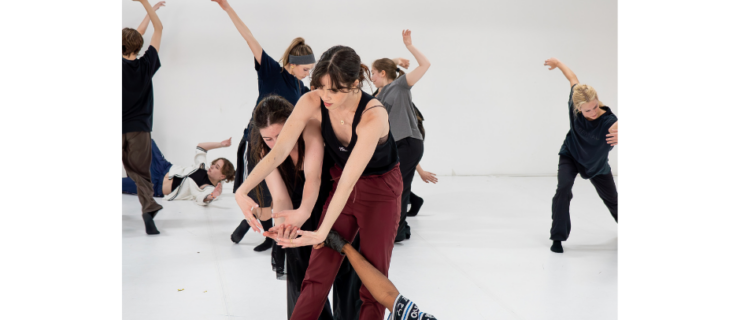Power Zzzzzs
Photo by Quinn B. Wharton.
Michael Apuzzo manages the leaps, jumps, and lightning-quick changes of direction in Paul Taylor’s Brandenburgs without a hitch, thanks to his extraordinary abilities—and, according to him, to the 20-minute snooze he takes between tech run-through and the performance. “It’s such a bonus to get a nap in because this piece is so intense. I really need to get to my power,” says Apuzzo, now in his third season with the Paul Taylor Dance Company. “A nap re-centers my body and mind so I feel completely refreshed for the show.”
Sleep may have more to do with your performance than you realize. Without enough of it, just about every human function is compromised: memory, concentration, learning, coordination, immune system, metabolism, and more. While not a replacement for a good night’s sleep, a nap can refuel your energy battery, buff up your mental faculties, and even boost creativity. There is considerable evidence that short naps improve mental ability in certain areas. Some dancers feel napping indicates weakness or seems childish, but many find a brief snooze makes a marked difference in their energy and focus.
The term “power nap” was coined by social psychologist and leading sleep scientist Dr. James B. Maas, author of Power Sleep: The Revolutionary Program That Prepares Your Mind for Peak Performance. His research brought new validity to adult napping, tying a brief period of sleep into improved performance. Sleep happens in stages throughout the night, with REM (rapid eye movement) occurring in the later, deeper stages. In contrast, a power nap averages between 15 and 30 minutes, stopping before the cycle completes itself.
“In a nap, we go into non-REM sleep stages I or II,” says Dr. Makoto Kawai, a sleep neurologist at Methodist Neurological Institute in Houston “A nap can help us catch up on mild sleep deprivation. Most people working in the modern world are somewhat sleep deprived. We still don’t know why this short period of time gives us refreshment. But we do know that a shallower stage of sleep makes it easier to return to an awake state, giving us a boost.”
Amy Ell, an aerial dancer and artistic director of Vault Dance Company, manages a busy schedule of teaching at her Houston studio as well as performing and dance making. Aerial dance doesn’t go well with sleeplessness. There are just too many life-or-death details when it comes to rigging and apparatus. “The power nap is my lifeline to the second half of my very long day,” says Ell. She has a handy room in her studio where she will not be disturbed. “My body wakes me up on its own,” she says.
Although there is no ideal power nap duration, most agree that shorter is better. If you sleep longer than 30 minutes, you may wake up feeling lethargic. This is because your body has entered a normal sleep cycle, and ending it abruptly causes a condition called sleep inertia, where the napper can feel even groggier than before. “You enter REM sleep where you actually lose muscle tone,” says Kawai.
There are a few caveats to consider. According to Dr. Aparajitha Verma, medical director at Sleep Disorders Center at Methodist Neurological Institute, what happens during a nap depends on who is doing the napping. “A sleep-deprived person can have REM sleep in a power nap,” she says. This can lull nappers into thinking that they have cured a serious sleep deficit in a brief break. “Adults require seven or eight hours per night to process information, for immune responses, memory consolidation, tissue repair, and to maintain hormonal balance,” warns Verma.
Timing makes as much difference to the benefits as length. “If the naps are especially close to a person’s normal bed time, they may interfere with a good night’s sleep,” Verma says. She also draws a distinction between an intentional rest like a nap and falling asleep frequently during the day. If you are chronically tired, you should consult a doctor.
And while a nap can indeed give a short-term energy boost, it does not carry the full benefits of deep sleep. “Consolidation of both long- and short-term memory happens in sleep, and our reaction time, concentration, and attention span are affected if we are sleep deprived,” says Verma. “All the new information that is learned is not processed well.”
Apuzzo says he notices a direct connection to his performing power, especially in Taylor’s challenging The Word. “The piece requires such a high level of focus,” he says. “I am always glad I got a nap in before I do those back flips.”
Nancy Wozny naps from Houston where she covers the arts and health.




